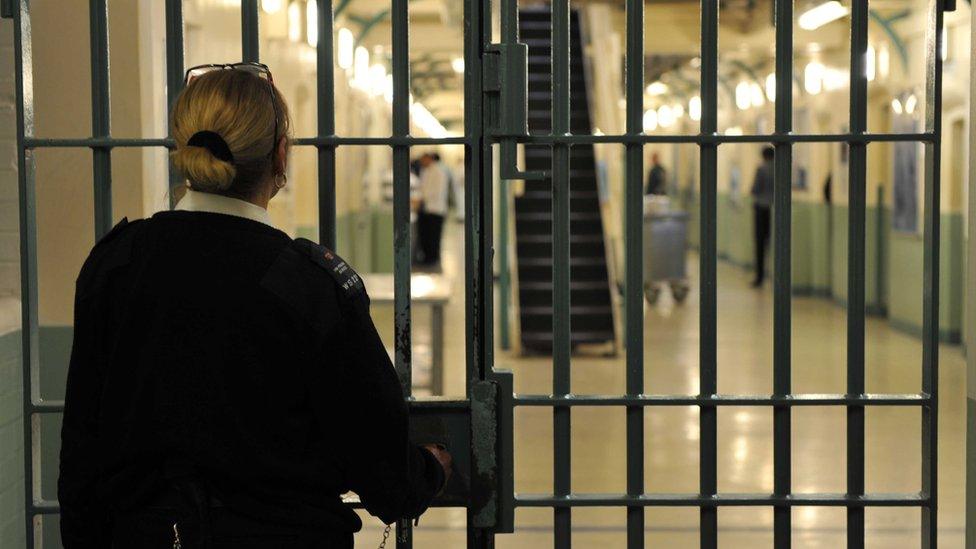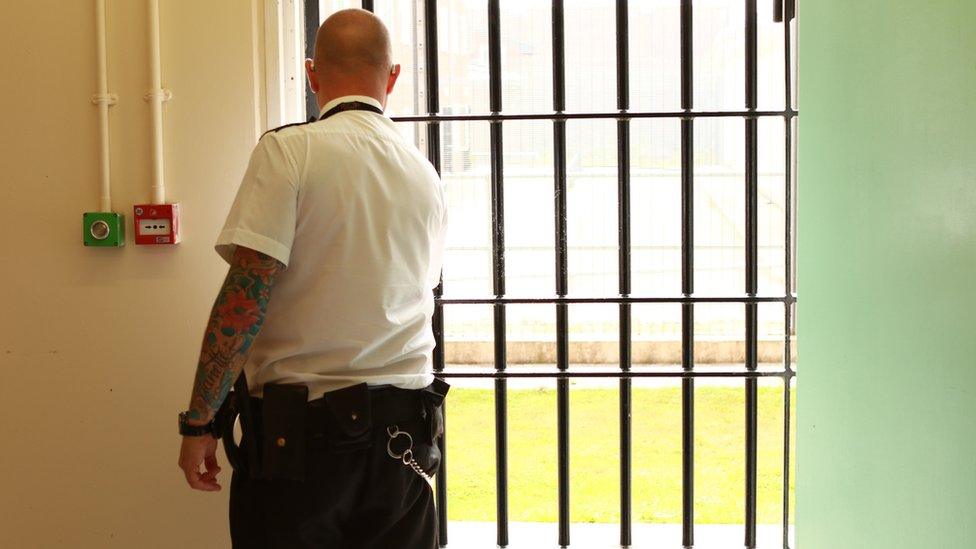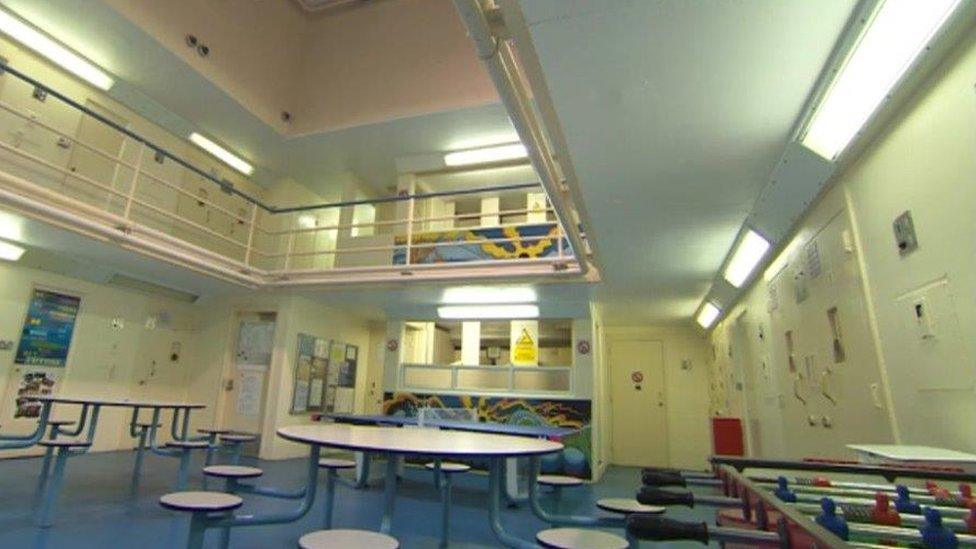Coronavirus: More than 140 released prisoners housed in hotels during lockdown
- Published

More than 140 prisoners have been housed in hotels and B&Bs after being released during the Covid-19 lockdown.
They include some offenders who have been freed from their sentences early to relieve overcrowding and reduce the risk of infection in jails.
A letter to hotel owners, seen by BBC News, says if they agree to take part in the scheme they will not be told the crime the prisoner has committed.
The government said hotels were used only as a "last resort".
All offenders due for release are "thoroughly risk assessed", the Ministry of Justice (MoJ) added.
The department said it had started using hotels in May, as part of the "Conditional Release Date" accommodation scheme, to prevent newly-freed prisoners having to sleep rough during the pandemic.
The MoJ said 304 former inmates let out on their scheduled release date have been provided with housing, 136 of whom have been put up in hotels or bed and breakfast accommodation.
Hotels have also been used to house six offenders freed early under an emergency programme to reduce overcrowding, known as the "End of Custody Temporary Release" scheme.
'Strict vetting'
According to officials, hotels for prisoners are identified by two business travel, conference and accommodation agencies, CTM and Calder.
A hotel owner in the north of England said he had received a letter, written by the Prison and Probation Service, asking whether he would have rooms available for offenders on the early release scheme.
The letter says accommodation in hotels, B&Bs and serviced apartments would be needed for up to 56 days.
It says: "We will not share information with you regarding the offence(s) the individual has committed but would wish to reassure that they have been subject to strict vetting."
The letter explains that electronic monitoring equipment would have to be installed in an offender's hotel room to ensure they abide by a curfew, but says staff would not be responsible for managing a prisoner's licence conditions.
"All incidents of concern should be dealt with in the same way as you would deal with any other resident and if local measures don't work (eg a phone call from reception to keep the noise down) be reported to police," the letter says.

SOCIAL DISTANCING: What are the rules now?
LOOK-UP TOOL: How many cases in your area?

Although it is highly unusual for released prisoners to be accommodated in hotels, they have been used for asylum seekers, most recently, and controversially, in Glasgow.
In June, six people were stabbed at a hotel in the city which had been used to house asylum claimants. Their attacker - Badreddin Abadlla Adam - was shot dead by police.
A MoJ spokesperson said: "All offenders due for release are thoroughly risk assessed and hotels have only been used as a last resort to reduce any potential spread of coronavirus.
"These temporary measures are part of the unprecedented response to the pandemic which has helped protect the NHS and save lives."
- Published27 April 2020

- Published28 April 2020

- Published8 July 2020
